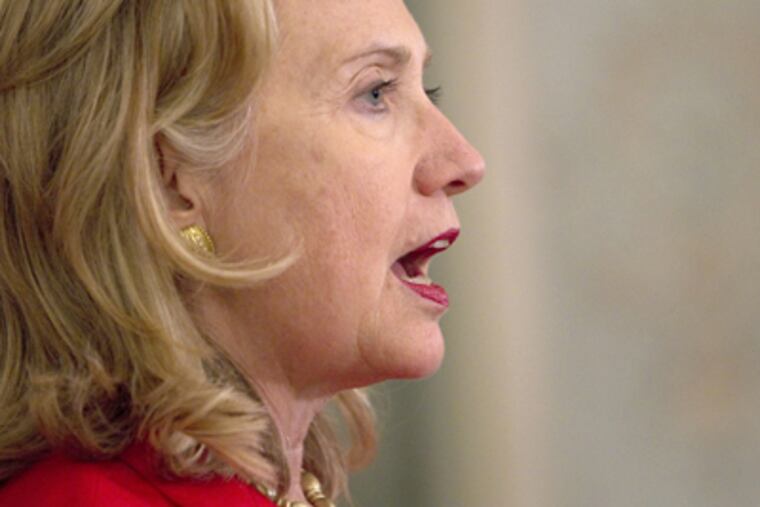Ignore Iranian regime's lies on opposition group
By Tom Ridge and Lord Carlile of Berriew While Secretary of State Hillary Clinton edges closer to deciding to remove the Iranian opposition group, the Mujahedeen e Khalq (MEK), from a U.S. list of banned organizations, the international media has been awash with Iranian regime propaganda attempting to demonize the group.

By Tom Ridge and
Lord Carlile of Berriew
While Secretary of State Hillary Clinton edges closer to deciding to remove the Iranian opposition group, the Mujahedeen e Khalq (MEK), from a U.S. list of banned organizations, the international media has been awash with Iranian regime propaganda attempting to demonize the group.
In an attempt to counteract this tendentious public relations campaign, the group's supporters, including senior figures in U.S., British, and European political circles, have waged their own media campaign to counter the Iranian propaganda.
Indeed, a recent independent assessment by a former senior State Department official debunked virtually all of the stale allegations that have been regurgitated by Tehran's lobby inside the Beltway in recent weeks.
In the midst of this punch and counterpunch media campaign, it is crucial that Clinton's decision be based upon genuine evidence. De-listing the MEK is a legal issue and Clinton must act on facts within the correct legal framework.
The MEK has fought similar legal cases in the United Kingdom and the European Union, and after numerous appeals it has been successful in being removed from those entities' lists of banned organizations.
The British courts found that allegations made against the group were untrue and in some cases were initially propagated from Iran's intelligence ministry. WikiLeaks revealed that, lacking any credible claim to maintain the ban on the MEK, the British government's continued defiance was more about how Tehran would react rather than what its legal system required it to do. In fact, the British Court of Appeal told us much about how the MEK had been mistreated, finding that the British labeling of the MEK as terrorist was "perverse." This was a severe indictment of the government's refusal to delist the organization.
For the EU, the embarrassment was even worse. It was dragged kicking and screaming through court after court until it had fought its last battle and succumbed to the legal reality that the MEK could not legally be labeled a terrorist group.
The judgments of the UK and EU courts are significant because the propaganda the Iranian regime wants us to believe about the MEK today is exactly the same as that replayed before those courts. Yet, in the end, those courts could not resist the evidence.
Now it is time for Secretary Clinton to make her decision. If she does so based on the facts, there is little doubt that she will conclude that in legal terms the ban on the MEK is no longer justified. However, if Iranian propaganda is allowed to muddy the water or the hope prevails that Tehran can be appeased by continuing to ban this Iranian opposition group, then things may not be so simple.
Clinton is credited as being a woman of principle who has the wisdom and foresight to recognize propaganda and withstand pressures inviting her to trample on the rule of law upon which all democracies are based. Our bet is that she will not fall into the trap set by the Iranian regime and its apologists and will stick to her principles in making the right decision and removing the MEK from the terrorism list. Only time will tell if we are correct.